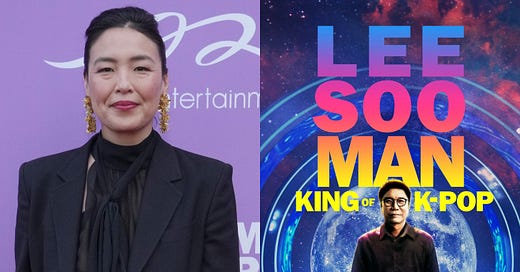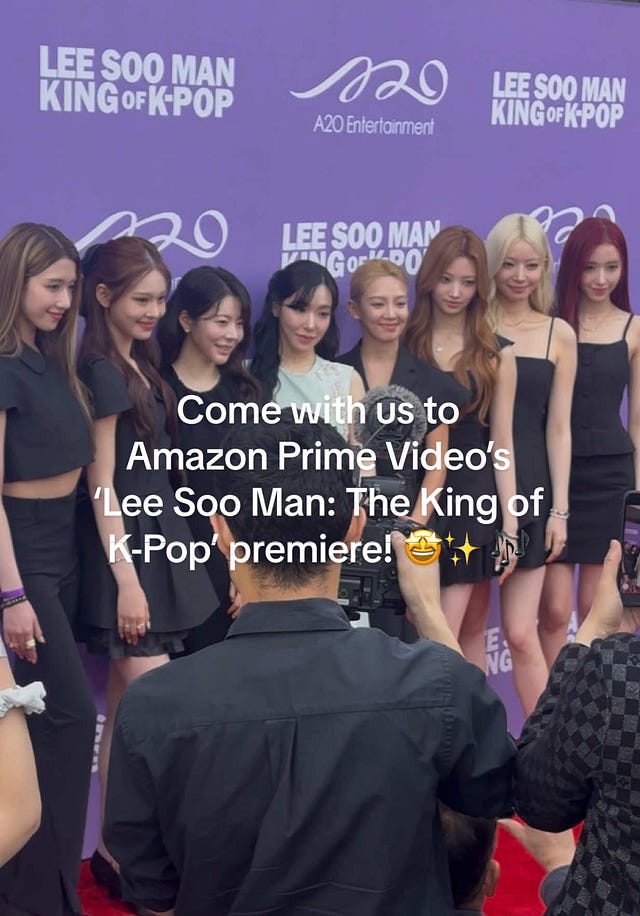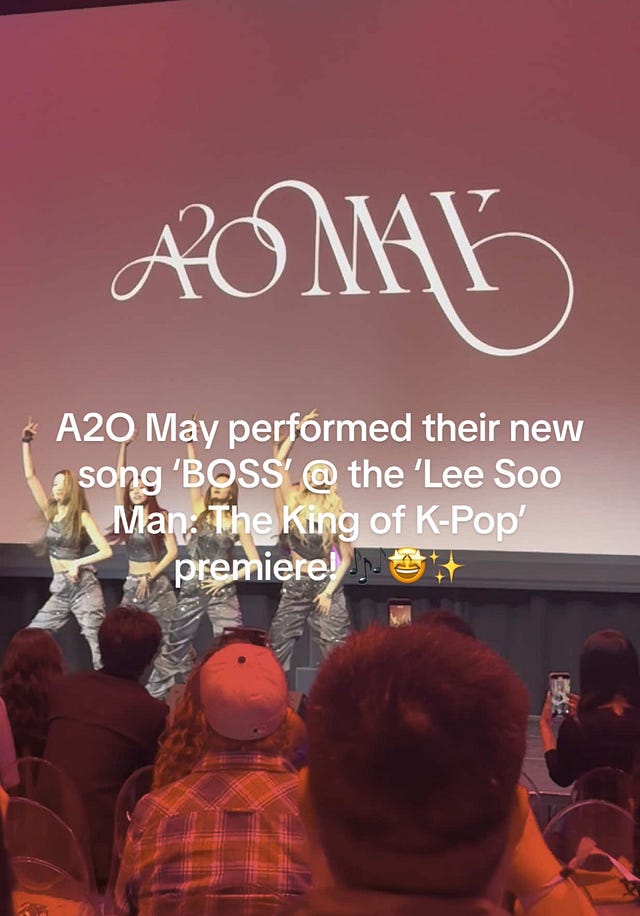Director Ting Poo Opens Up About Wanting to Tell K-Pop King Lee Soo Man’s Story
Gold Envelope's Raffy Ermac chats with Ting Poo, the director of Amazon Prime Video's new documentary film 'Loo Soo Man: The King of K-Pop.'
If you’re a lover of K-Pop, then chances are that many of the artists you love have been influenced in one way or another by Lee Soo Man, a singer-turned-exec who founded the iconic South Korean music giant SM Entertainment.
Gold Envelope: Can you talk a little about how you first became acquainted with Lee Soo Man? What was it about his life and his story that made you want to share it with the world in this way?
Ting Poo: Well I met him through This Machine, which is a documentary production company who had been developing the possibility of doing a doc with him. We were introduced pretty early on in the development and met. I was fascinated by him right away. We spent four hours on a rooftop because it was during COVID. He just had such a passion and was so excited about the future and the technology and all the plans that he had in store, and I just really saw him as somebody who has a vision and undeniable in his part in the creation of this culture. So I it was an opportunity that I jumped at.
As we see in the film, Lee has tons of successes, but also has been through his fair share of rough times and controversies. How did you approach that in the making of this film? You don’t sugarcoat anything or anything like that, but you wanted to share it in a real way. So how did you approach that, especially with someone as big as him?
When you tell the story of anyone, you have to tell both the successes and the extreme challenges, the tragedies that happen. It’s a whole picture, right? That’s actually what, what makes the story human, because we all go through those things. Even though he doesn’t really talk about these things publicly, he understood the importance of it and and I was grateful that he was willing to answer all the hard questions.
Getting to see all of that was actually quite, like you said, humanizing. So what was it like to get a peak behind-the-scenes, behind this curtain, and get this kind of access to a man who has had so much influence in this big global industry, someone whose story we don’t usually get to see or get to access him in that kind of way before?
I think, I think it’s about A.) trust building, but B.) also the intention with which you meet somebody. And it’s not about, like you said, it’s not about sugar coating. It’s about like knowing that you want to paint an honest picture. Conveying to them that you want to paint an honest picture and a complete picture of them as a human being, and it’s impossible to do that, because so much of who we are is defined by our difficulties, even more so than our successes.
From what I gathered, Lee was actually pretty willing to talk and be open for the making of the film. You got access to his life that he didn’t really have to give you. Was it surprising to have him open up and be on the record in that kind of way?
It was, and I have to give him credit. The way I enter every interview is I don’t filter questions. It’s up to the individual themselves whether or not they they want to answer them. And he did. And I think that’s very brave on anyone’s part.
So when the trailer was shared or online earlier this month, there was a lot of strong reactions from very passionate K-Pop fans. Do you think this film will do anything to maybe open their minds? What do you think this film will do for people who maybe have some preconceived notions about what it’s about or what Lee is all about?
I hope that they get, they get to see him in a way that he hasn’t allowed himself to be seen, then they can have their thoughts and opinions about it. I really hope that people watch the film, and, of course, are open to criticism. That’s what films are for, right? It’s to start a dialog and to show different layers of things, different aspects of people that you might not have known. More than anything, I just want people to watch the film and have an experience and form any opinions on it, because I think that’s why we do what we do.
How familiar were you previously with some of these artists, and what was it like having some legendary K-Pop girlies get to contribute to your film?
It was great. I was kind of floored that the the artists themselves are such passionate people. They they care so much about their fans, about the music they’re making. It’s really incredible. And the dedication and the care over their fandom and the people they work with and around. They form deep relationships with their artist teams. It was really actually inspiring to see not just the artists themselves, but the amount of hard-working people around them that have a shared goal to make something that’s really going to bring joy to to people.
What was the most interesting thing you learned about Lee and that you learned about the K-Pop industry as a whole while making the film?
I think when I picture music getting made, and this is just my my own personal framework, it’s like aa musician or a band goes into a room and writes and then records, but it is not that. It really is a group effort. It is producers and talent and songwriters from across the world. It’s choreographers, because K-Pop is such a 360 medium. It’s not just the music, it’s the video, it’s the story they’re telling, it’s the choreography, it’s the dance… all of it, it takes so many different aspects of different different disciplines into one. So that, to me, was a discovery. It really is the effort of a lot of people with a creative vision that goes into making this music, and obviously, like we see in the documentary, the actual genre of K-Pop.
The industry has been around for years, but I still feel like it’s on the rise. Where do you think the industry will be in maybe the next 5, 10, 20 years from now, and what do you think we have to expect as audiences and fans of it?
That’s tough to say. I mean, Lee Soo Man would, would probably be able to tell you. I hope it just continues to to grow. I think more and more groups are being made with more and more members from different countries. It’s a genre that’s really transcending just Korea. So if I were to predict, which I’m not the expert to predict, I would say that it would just keep growing and pull from more places. More different places, more cultures. Encompass more of the the globe into into itself.
Lee Soo Man: The King of K-Pop is now streaming on Amazon Prime Video.









